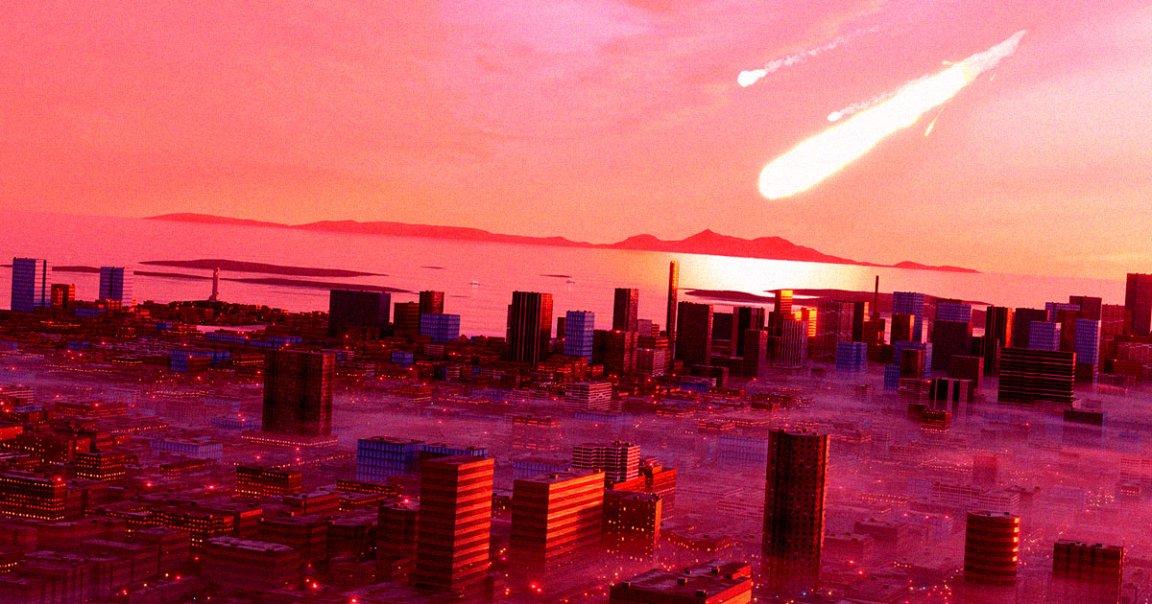
According to NASA’s Jet Propulsion Lab, near-Earth asteroid 2024 YR4 now has a 3.1 percent chance of colliding with our planet on December 22, 2032.
That makes it the highest-threat asteroid ever detected, as Euronews reports. As of late January, the probability was sitting at just 1.3 percent, which then rose to 2.1 percent last week before rising yet again.
Worse yet, the space agency suggests the asteroid could hit densely populated areas of our planet — if it were to make an impact just under eight years from now, that is.
“In the unlikely event that 2024 YR4 is on an impact trajectory,” NASA notes in a blog post, “the impact would occur somewhere along a risk corridor which extends across the eastern Pacific Ocean, northern South America, the Atlantic Ocean, Africa, the Arabian Sea, and South Asia.”
As Euronews notes, those vast swathes contain some of the largest cities on Earth, including Bogota in Colombia and Mumbai in India. Thanks to its size of anywhere between 130 and 330 feet in length, the devastation could be significant if it were to crash down anywhere near a population center.
According to NASA, the space rock would approach the Earth’s surface at a terrifying 38,000 mph. Upon impact, it would release eight megatons of energy, which is more than 500 times the energy released by the bomb that was dropped on Hiroshima, Japan in 1945.
Earlier this week, the European Space Agency noted that 2024 YR4 surpassed the 2.7 percent chance of impact associated with the much larger asteroid, dubbed Apophis, back in 2004, claiming the crown as the “‘riskiest’ asteroid ever detected.”
“As more observations of the asteroid are made, the uncertainty region will continue to shrink and the impact probability may continue to rise,” the ESA wrote. “If we reach a point at which Earth is no longer inside this region, the impact probability will quickly drop to zero.”
As of right now, 2024 YR4 still comes in at a three on the 11-point Torino Impact Hazard scale, which measures the probability of an asteroid hitting the Earth. That, according to JPL, means that the possible impact is “meriting attention by astronomers,” plus attention “by public and by public officials is merited if the encounter is less than a decade away.”
Apart from having a 3.1 percent chance of hitting the Earth, the space rock also has a less than one percent chance of hitting the Moon instead.
It’s a highly intriguing object that’s convinced NASA to use its groundbreaking James Webb Space Telescope to have a closer look.
Whether its trajectory warrants an intervention, like the space agency’s asteroid-redirecting DART spacecraft, which successfully knocked asteroid Dimorphos out of its orbit in 2022, remains to be seen.
More on the space rock: Don’t Freak Out, But the Chances of That City Killer Asteroid Hitting Earth Just Ticked Up Again